IFOP-Parlons Climat-A Rocha survey results
Christians and the climate: what are we fighting for? A ground-breaking study of the environmental commitment of Christian communities in France
[find the video presenting the results (10′) – in French]
[see also feature article in Christianity Today]
A survey carried out by IFOP, with Parlons Climat and A Rocha, supported by the FLAM Foundation, Nuances d’Avenir and Bersier-Regards Protestants.
A first-of-its-kind study in France
In France, a wide range of players are active and vocal on environmental issues within religious institutions, or through denominational or ecumenical associative initiatives. However, until now there has been no quantitative study to determine how the environmental emergency is known and understood by French Christian believers, or how they see environmental action in the context of their church life.
This study, based on a survey carried out by IFOP between April and June 2023, at the request of A Rocha and Parlons Climat, with the support of the FLAM Foundation, Nuances d’Avenir and the Bersier Foundation – Regards Protestants, offers for the first time a survey of opinion within a sample of believers, Catholics and Protestants, who declare themselves to be churchgoers.
It offers insights into the levers and obstacles to personal commitment, the role expected of the Church, and the links between the intensity of religious practice and the desire to take action for the climate.
The main findings
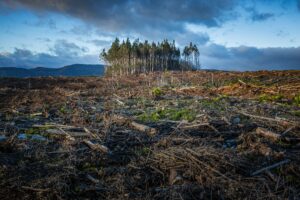 The majority of Christians surveyed are aware of the environmental crisis and human responsibility for climate change
The majority of Christians surveyed are aware of the environmental crisis and human responsibility for climate change
➔ Of those who believe that climate change is occurring, 85% of practising Catholics and 80% of Protestants agree that we need to radically change our lifestyles now to combat environmental degradation and climate change.
➔ A majority recognise the anthropogenic causes of climate change: 65% and 63% of Catholics and Protestants respectively believe that climate change is mainly due to human activity.
➔ Nevertheless these figures highlight doubts about the causes of global warming, in slightly higher proportions than those found among our sample of non-believers.
A vision of nature and the environment that remains anthropocentric
➔ Respectively 68% and 70% of Catholics and Protestants agree with the idea that nature is a resource available to human beings.
➔ Respectively 46% and 42% also agree that human well-being comes before nature because humans possess a higher dignity.
 A strong desire to act … but doubts about the most effective means
A strong desire to act … but doubts about the most effective means
➔ At their own level, respectively 81% and 82% of Catholics and Protestants would like to do more in the face of environmental degradation and climate change.
➔ But 53% and 49% respectively don’t know what to do about environmental degradation and climate change.
A link between ecology and spirituality that is not made by all the Christians surveyed
➔ Respectively 92% and 90% of Catholics and Protestants agree that caring for the Earth also means caring for your neighbour.
➔ But they are respectively 50% and 47% sensitive to ecology without however making the link between their opinions and their spirituality.
➔ Also, 30% and 26% respectively see no connection between the two.
Waiting for churches to speak on the subject of climate by more than half of those surveyed
➔ More than half of those polled, 52% and 58% of Catholics and Protestants respectively, believe it is the role of the Church to talk about the environment and climate change.
➔ Moreover, among those for whom it is not the role of the Church to talk about these subjects, we find respondents who, for the most part, do not make the link between spirituality and ecology.
For Jérôme Fourquet, Director of IFOP’s Opinion and Corporate Strategies department, these results show above all that, “although the link between faith and climate is not immediate, a reconciliation is possible. Half of all Christians would like to see the environment and climate change feature more prominently in the life of their community. This presence is expected in a very concrete way, in response to a need for action in the face of what is at stake, to ward off a fairly widespread feeling of powerlessness”.
Among practising Catholics surveyed, the influence of the encyclical Laudato si’ is noticeable
As Pope Francis prepares to publish a follow-up to Laudato si’ (on 4 October), the influence of the encyclical can be clearly seen in our results: even though it remains little known on average, the Catholics most committed to the environment are also those who know about it and have read it, which seems to underline its role as a catalyst.
We also note that a proportion of respondents who are very committed to environmental issues establish a link between their Catholic faith and their ecological commitment. This reveals, by contrast, a perceived need for resonance between ecological values and the teachings of the Church, while at the same time expressing a certain disappointment about practical alignment.
According to Cléo Schweyer, doctoral student in information and communication sciences on the appropriation of ecology in a Christian context (ELICO laboratory, Univ. Lumière-Lyon 2):
“For the people we surveyed, taking ownership of environmental issues means rereading and rewriting them in the light of their faith culture. The words of churches and religious leaders are important in that they may or may not legitimise these issues, then reformulate them, and finally place them within a tradition that makes them communicable to as many believers as possible. Religious integration continues to have a decisive impact on people’s relationship with politics and values”.
 Protestants surveyed see more complex links between ecology and spirituality
Protestants surveyed see more complex links between ecology and spirituality
The study reveals a complex dynamic between environmental aspirations, spirituality and religious practice. While the majority of participants express a concrete desire to commit to the environment, even within their church environment, the study reveals a need to harmonise spiritual values with the imperative to protect the planet. There is a consensus on the desire to take action and do more in the face of climate change, but there seems to be more debate about the role of human beings and religious institutions on these issues.
Finally, the picture is qualified by the presence of an environmental counter-discourse among some participants, influenced mainly by a negative perspective on the relationship between ecology and religion. This unfavourable perception seems to be the major obstacle for those who resist integrating environmental concerns into their religious framework.
For Jean-François Mouhot, Director of A Rocha France, a Christian organisation for the protection of nature and the environment, “this type of survey, which is quite common in certain countries such as the United States, is a first in France. The results published today, the fruit of lengthy preparatory work, will enable us to identify the levers for action and the points of resistance, so that we can better communicate the importance of ecological and climate issues to the Christian public, which is the core target audience that A Rocha wishes to mobilise on these issues”.
The conclusions of a 2-part study, which involved numerous players within the churches concerned
After a first part focusing on Catholics, revealed in June 2023, this study is now complete. While it does not describe what Christians “in general” think about the environment, it does provide a better understanding of how Catholics and Protestants view climate change and the role of their church.
This work, initiated by Parlons Climat and A Rocha France and supported by the FLAM Foundation, Nuances d’Avenir and Bersier-Regards Protestants, was carried out following preparatory research involving numerous organisations (including Église Verte, the Conférence des Évêques de France, the Fédération Protestante de France, the Conseil National des Évangéliques de France, the Laudato Si movement, the MRJC, Secours Catholique, SEL, CCFD, Destin Commun… ), as well as academics.
Lucas Francou Damesin, associate of Parlons Climat (a structure that aims to convince new audiences to commit to the climate), “We are very pleased to be publishing this expanded study today, based on numerous preliminary interviews with Christian stakeholders and academics, whom I would really like to thank. We feel it is essential to understand the specific ways in which Catholics and Protestants view the ecological transition.”
Methodology
Study carried out on the basis of an IFOP survey of three samples of respondents:
- 987 people, representative of the French population aged 18 and over
- 484 self-identified practising Catholics
- 379 self-identified Protestants (including 274 self-identified “practising Protestants”)
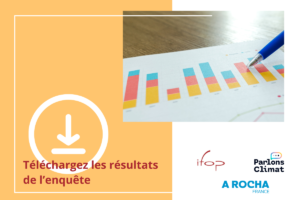
Presentation of the results by IFOP
Presentation and analysis – Parlons Climat
These pdfs are in French only

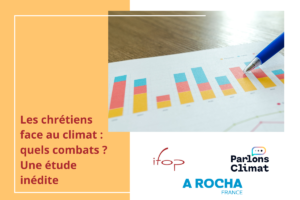
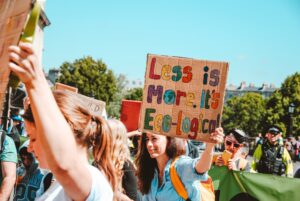 A strong desire to act … but doubts about the most effective means
A strong desire to act … but doubts about the most effective means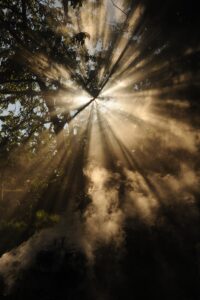 Protestants surveyed see more complex links between ecology and spirituality
Protestants surveyed see more complex links between ecology and spirituality